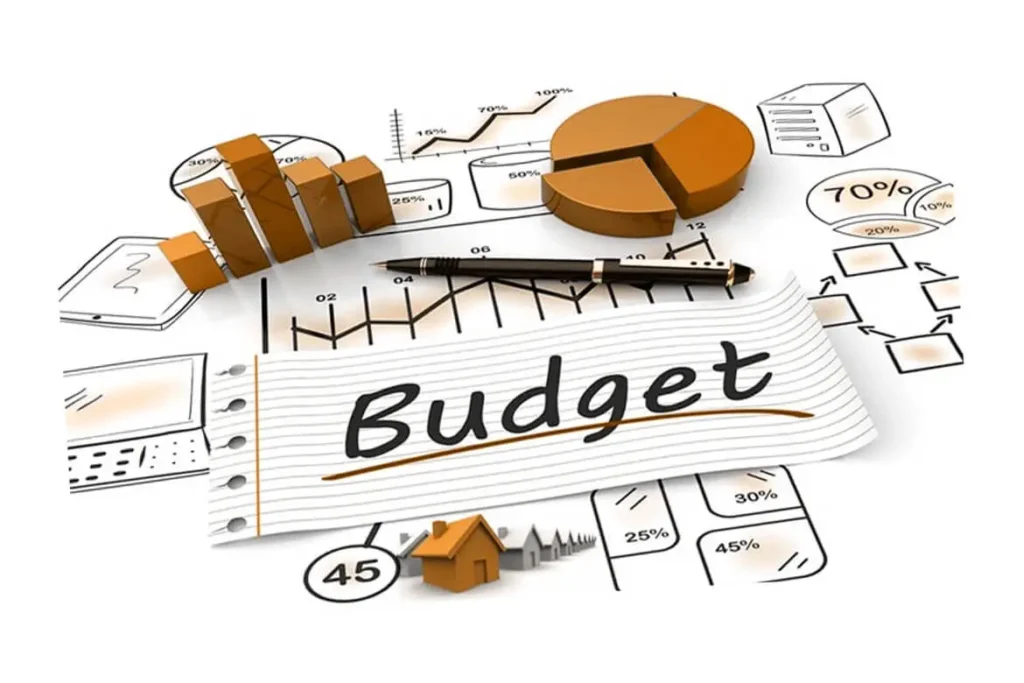Have you ever experienced a Financial problems? Do you know your financial weaknesses? If we want to be financially stable and successful. We need to face our financial weaknesses. This article will help you find your way through the confusing world of personal finance. We can’t get to financial freedom. If we have weaknesses in our finances. Like we will discuss small spending habits or big debt loads. But by shedding light on these weaknesses, we give ourselves the power to take charge of our financial prospects. So, read till the end. Let’s begin it.

What is financial weaknesses?
As you there are many problems that can hurt our Financial Health that are called financial weaknesses. They might show up as spending too much, getting deeper in loans, or not saving enough. Firstly, We need to do to get back in charge of our funds is to see these weaknesses. If we know the real causes and trends behind our money problems. We can come up with targeted solutions that work. Learning about our financial weaknesses. Which will help us make smart choices and build a stronger financial base for the future. This is true. Whether, we’re trying to stop buying things on a desire or setting up a structured plan to pay off our loans.
Common types of financial weaknesses individuals may face
- Buying things without thinking
- Building up of high-interest loans
- Not enough emergency savings
- Not knowing enough about investments
- What Living Beyond Means
The financial problem-solving process
First, let’s take look on general problem-solving process, through which we overcome our financial weaknesses
Identifying Your Financial Weaknesses
Self- assessment is important for your financial health. Finding your financial weaknesses. That can help you make plans for a safe future. Checking spending patterns, debt management, saving habits, and investment information. These assets will help people figure out what they need to work on. This process helps people make better financial decisions. And, take more responsibility for reaching their financial goals.
Learning About Your Spending Habits
Checking to see where extra money is being spent. And finding costs that aren’t needed can help you save money and get your finances in better shape.
Smart Ways to Handle Debt
Looking at how much loan you already have. Pay it in a smart way. It can help reduce stress and improve your general financial health.
Improving the Way People Save
It is possible to build emergency funds. Moreover, ensure financial stability for the future by looking at how much you save and making goals that are feasible.
Getting smarter about investments
Many people can make smart investment decisions. They get the best long-term returns by reviewing their investment plans and looking for ways to improve their financial knowledge.
Recognizing Behavioral Patterns
Seeing patterns in behavior is important for growing as a person and for learning how people interact with each other. People can find patterns of behavior, both good and bad, by keeping track of their habits and how they react in different situations. Being aware of these things helps you think about yourself and make changes. which will help you reach your goals and keep your relationships healthy.

Observing Daily Habits
Paying attention to the things you do. How you feel throughout the day can help you see patterns that affect your productivity, mood, and overall health. This can help you find ways to improve and make things better.
Understanding Emotional Triggers
Figuring out what causes you to have a strong emotional response can help you control your feelings and find better ways to deal with stress and problems.
Thinking about how decisions are made
Decision-making patterns, biases, and habits can be found by looking at past decisions, And the thought processes that went into them. This helps people make better, more conscious choices that are in line with their goals and values.
Seeking Professional Guidance in Finance
If you want to make smart financial choices and improve your overall financial well-being. You need to get professional help. Financial experts can help you get through the complicated world of money and reach your long-term goals with confidence. They can give you personalized advice on everything from investment strategies to retirement planning.
Investment Advisory Services
Talking to investment experts can help you build wealth and protect your financial future. Make various portfolios, getting the best returns, and managing risks well.
Retirement Planning experts
Advice from retirement planning experts can help you set goals for your retirement. And figure out how much you need to save, and choose the best retirement accounts and investments to make your retirement comfortable.
Tax Planning Experts
Hiring tax planning experts makes sure you follow the tax laws. Saves you the most money on taxes, and finds tax discounts and credits that can lower your tax bills.
Estate Planning Advisors
Talking to estate planning advisors can help you make complete estate plans that include wills, trusts, and asset protection methods to keep your assets safe and make sure they are distributed the way you want them to be.
Setting Realistic Financial Goals
For financial success and security, it’s important to set goals that are attainable. People can make plans to reach their financial goals and ensure their future financial well-being by setting clear goals. These are in line with their income, costs, and long-term goals.
Analysis of Present Financial Situation
Looking at one’s income, spending, debts, and assets gives them a starting point for setting realistic and attainable financial goals.
Setting Short-Term Goals
Making short-term financial goals, like saving money for an emergency or paying off credit card debt. It helps you build energy and see real progress toward your longer-term financial goals.
Planning for Mid-Term Goals
When setting mid-term financial goals, like saving for a down payment on a house or paying for a child’s college, it’s important to think carefully about deadlines and available funds to make sure the goals are realistic and achievable.
Setting Long-Term Financial Goals
To set long-term financial goals, like saving for retirement or becoming financially independent. You need to think about your future needs and living choices and then come up with ways to get rich and become financially free over time.
Developing a Personalized Financial Plan
Making a personalized financial plan is important for long-term goals and getting your finances in order. By looking at their own financial situation, making clear goals, and using custom strategies, people can confidently and purposefully make their way through their financial journey, protecting their present and future financial well-being.
Assessing Financial Situation
Looking at your income, spending, assets, and debts gives you a full picture of your current financial situation and helps you build a personalized financial plan.
Setting Clear Goals
Writing down clear short-, medium-, and long-term financial goals helps you organize your goals and make a plan for how to reach your financial goals.
Creating Strategies
Making personalized strategies for things like planning, saving, Investing, and managing debt helps people deal with their specific financial needs and situations in the best way possible.
Reviewing and Adjusting
Regularly going over and making changes to the financial plan based on new information about your life, your financial goals, and the market makes sure that it stays relevant and helps you reach your goals.
Monitoring Progress and Adjusting Strategies
To solve your financial problems. You need to keep track of your success and make changes to your plans as needed. People can stay on track and make the necessary changes to get the best results and deal with problems along the way by keeping track of financial milestones and reviewing the effectiveness of strategies that have been put in place on a regular basis.
Tracking Financial Milestones
Keeping an eye on your progress toward your financial goals can help you figure out what you’ve done well and what you need to change or improve in order to stay on track.
Evaluating Strategy Performance
Figuring out what’s working well and what needs to be changed or improved for better results. It is possible by evaluating the performance of adopted financial strategies.
Figuring Out What the Problems Are
Figuring out what the problems or setbacks are that are stopping people from reaching their financial goals. Let them deal with them and change their plans to get around them.
Optimizing Strategies
Making the necessary changes to financial strategies based on progress and problems met keeps them in line with changing financial goals and increases the chances of success.
Conclusion
Finding and fixing your financial problems is a must if you want to be stable and successful. Thus, People can make plans that work for them by being aware of their buying habits, debt loads, and patterns of behavior. However, the Important steps in this process are getting professional help and making goals that are attainable. Thus, regularly checking on progress and making changes to strategies will ensure steady growth toward long-term financial success and well-being. Today, take charge of your money journey.











